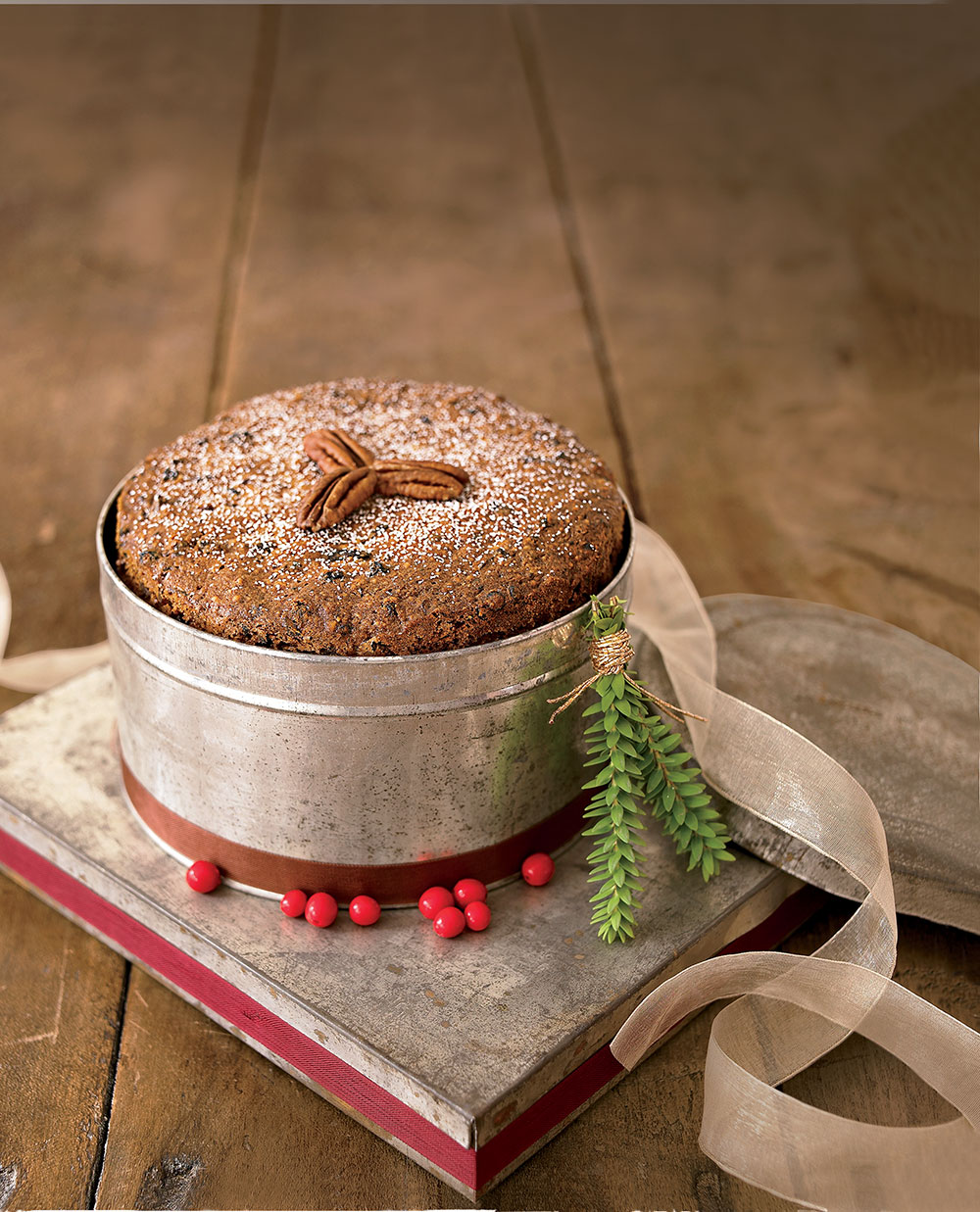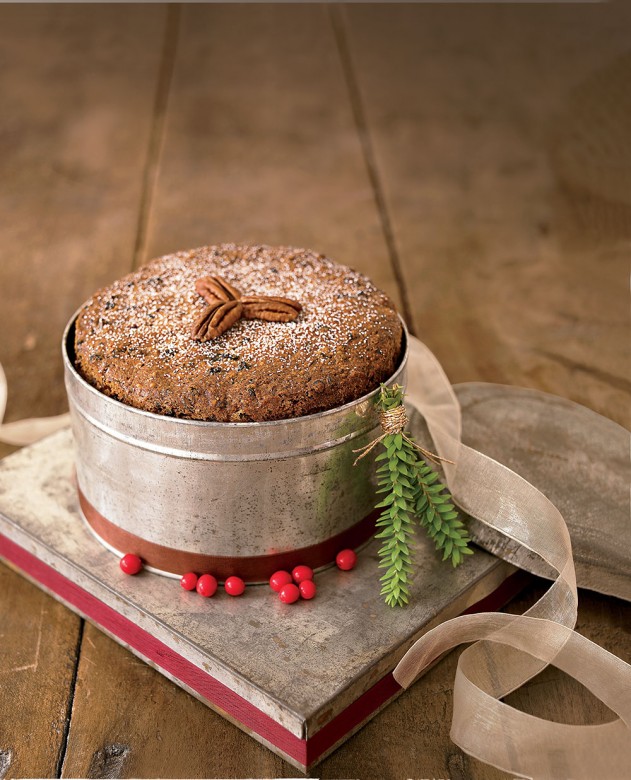Fruitcake Weather | Mary’s Farm
Remembering what we love about the fragrant, festive holiday fruitcake, plus a delicious recipe for the easiest fruitcake ever. We promise.

Best Fruitcake Ever
Photo Credit : Heath Robbins
Photo Credit : Heath Robbins
It seems that the word fruitcake can no longer be spoken in polite society. You wouldn’t dare serve it. Referred to as a “doorstop” or a “boat anchor,” fruitcake has become the object of jokes on late-night television, where chainsaws and welding torches are suggested as successful cutting tools.
One jokester somewhere out West apparently hosts an annual fruitcake toss, with the current record being 420 feet. Another man claims to have found in his attic an old fruitcake that he estimated to be pre-World War II. I believe he said he ate it. A woman put an ad in her local paper after the holidays, soliciting unwanted fruitcakes, which she then added to her compost, expecting a rich result. When fruitcake was added to the list of items that might provoke questions from baggage inspectors at the airport (it’s so dense that the scanner equipment can’t tell it apart from plastic explosives), it only added fuel to the fruitcake fire. How has this once-exalted holiday staple become such a target?When I was growing up in the 1950s, we often received fruitcakes in the mail between Thanksgiving and Christmas. This powerful confection came to us from bakeries in Georgia or Texas, where pecans are plentiful and fruitcakes are still big business. From inside the rugged mailing carton, the dark cake would emerge, crimped red paper gripping the circle of candied cherries, citrons, pecans, and apricots. On nights leading up to Christmas, my mother would slice the cake thickly and serve it to us on holiday plates, an exciting prelude to what lay ahead.
During the holidays, for many years, I’ve read Truman Capote’s A Christmas Memory aloud, with my cousin George or with whomever I can coax into listening. The set-off line to this wonderful, evocative memoir is: “Oh my, it’s fruitcake weather,” spoken by a woman in her sixties to her seven-year-old cousin and best friend. Thus begins the story of their annual ritual of gathering the ingredients for 30 fruitcakes to present to friends — such as Eleanor Roosevelt. Included in all this is a perilous journey to obtain a bottle of whiskey for the cake from the local bootlegger, Mr. Haha Jones.
Early last December, I gathered with new friends who love Capote’s story as much as I do. They’d just put up their tree and begun to trim it. They, it turns out, always read A Christmas Memory aloud at this time of year, a fact that automatically endeared them to me. Along with their two young sons, we all settled in front of a big hearth fire, each of us taking a turn reading. The fire popped and spat sparks, and, if we looked outside, it might have been Alabama in the 1930s. We were stuck in a time none of us had ever known or remembered.
Just before Christmas, my new friend baked me a fruitcake, the first one I can remember receiving in my adult life. It was plump and heavy — yes, capable of being a doorstop (though I’d stop short of the boat anchor concept). Later, I opened the tightly wrapped loaf. The wheat-colored cake was dense with citrons and candied cherries, walnuts and dried cranberries, and lots of raisins. The fragrance was somehow just as much of Christmas as a balsam tree and a roasting turkey. “It’s fruitcake weather,” I thought to myself, and dropped back to a time when bootleg whiskey was a secret ingredient and cousins were the best kind of family.


